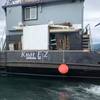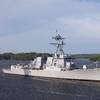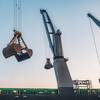International lassification society Bureau Veritas says OCIMF is right to support moves towards higher common standards for tankers currently being developed by all leading class societies, and right to refuse to endorse the unilateral initiatives taken by ABS, DNV and LR alone. Yesterday Will Jenkins, vice chairman of OCIMF, praised the contributions of BV, GL, Class NK and the Russian Register and reiterated that OCIMF was
willing to work with any organisation for quality and safety.
Bernard Anne, head of BV's marine division says, "OCIMF wants
quality tankers, which we fully support, and the support of its members for
all our efforts is vital. It is obvious that the unilateral moves by ABS,
DNV and LR to develop common scantlings are not a technical issue, but a
commercial one. These three societies are trying to create a dominant market
position. That will stifle competition and stifle innovation. We have
already seen the consequences of overhasty moves in the bulk carrier field.
It is obvious nonsense to suggest that by huddling together like spoilt
children and trying to exclude other class majors these three societies can
improve safety or quality for the world fleet. Our industry understands a
lot about anti-trust and anti-competitive measures, and oil majors are
always very careful to avoid any such collusion."
Anne continued, "All the class majors have areas of expertise which
they can contribute to developing common standards, and each can bring
something to the table. If we treat this as it should be, as a technical
issue, then the whole industry can move towards higher common standards,
helped by the backing of OCIMF members. But if we split up into little
groups and each go our own way, then we lose technical input, the result is
not as good as it should be, and we end up with a distorted market."
BV's position has been to work strongly with other IACS members to
devise workable improvements to future designs and give practical guidance
to yards and owners. "We fully support IACS, and also believe that it will
be possible for IACS members to develop common basic scantlings," says Anne.
"But this is not a question about unified IACS or not, it is a question of
what is best for shipping. At the moment much of the action is about what is
best for three societies, and that holds back efforts to find global answers
to global problems. Let's stop this nonsense and all get round the table."
Sponsored Content
Safer Starts Here: Build Ships, Protect Crews

July 2025
 Read the Magazine
Read the Magazine

 Read the Magazine
Read the Magazine
This issue sponsored by:

The Golden Ticket – VIP access & invitation to take an active role in History
Subscribe for
Maritime Reporter E-News
Maritime Reporter E-News is the maritime industry's largest circulation and most authoritative ENews Service, delivered to your Email five times per week









